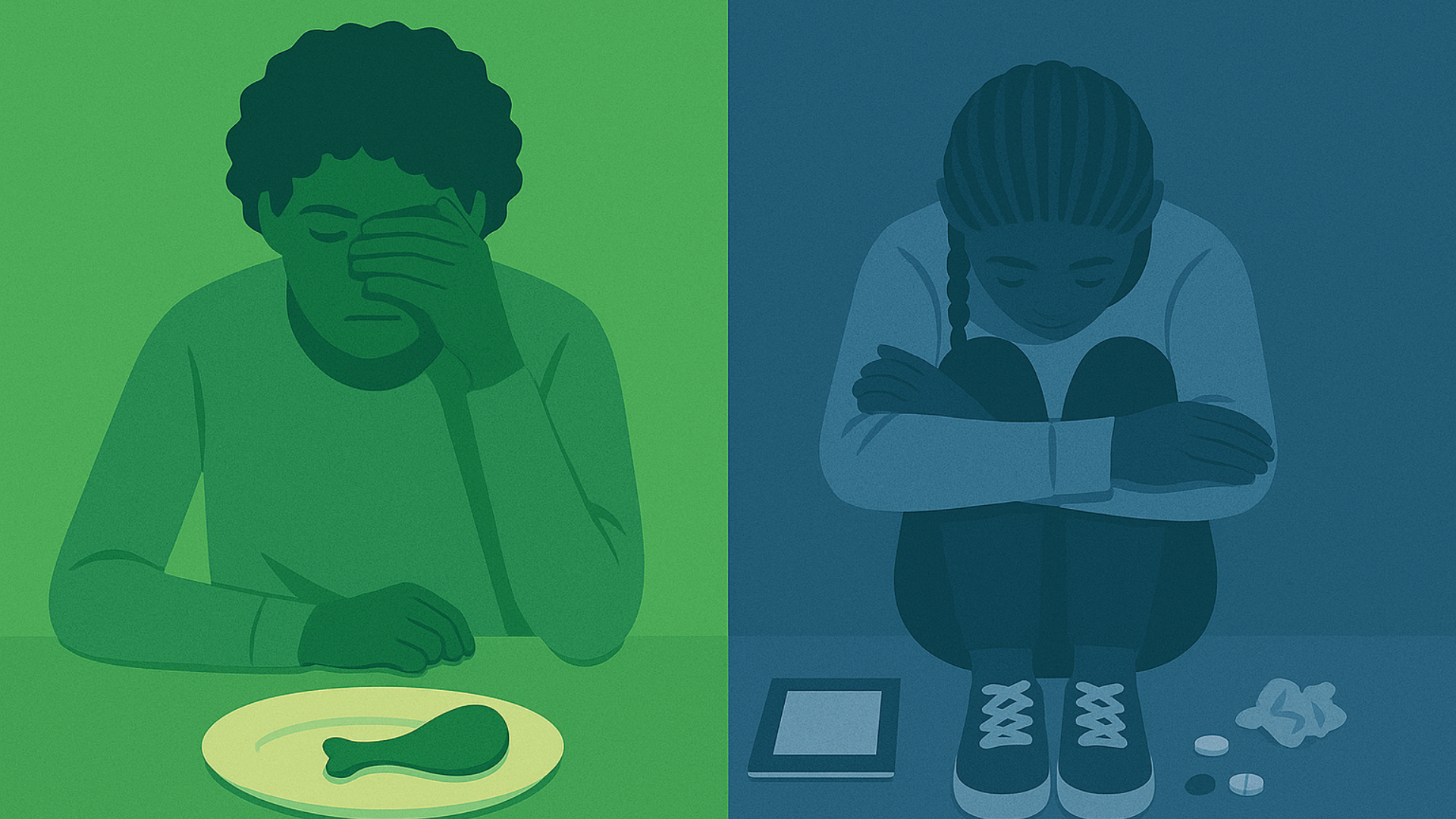How to Self-Screen for Signs of Depression: Eight Questions to Ask Yourself

By Thrive Reno Clinical Director and Therapist, Kerstin Trachok, CPC
UNDERSTANDING SIGNS OF DEPRESSION
Depression is most commonly associated with feelings of deep lasting sadness, however there are other symptoms and co-occurring emotional states that can cause depression to go unnoticed by afflicted individuals.
For example, instead of sadness, individuals struggling with depression may feel irritable or angry. Or, they may be too stressed to even realize that depression is at the root of their mental-emotional struggle.
Humans are highly adaptive. As we mold to life’s twists and turns, we can forget to acknowledge how we feel about these changes. Often slight changes in one’s mental-emotional state can compound on each other until one’s daily functioning is significantly inhibited.
To avoid being blindsided by small mood changes that multiply into greater concerns, individuals should carve out time for self-reflection. During these quiet moments, they should consider how they are experiencing different elements of their life.
To take stock of your feelings about your circumstances, you might ask yourself the following questions:
- Am I having a hard time experiencing pleasure in things?
- Do things that once were exciting now feel like a task or something I no longer want to do?
- Have I been feeling consistently unlike myself?
Based on your responses, you may decide to adjust your circumstances or see a therapist who can help you navigate your struggles. By preventing your mental-emotional state from worsening, therapy can serve as a kind of early intervention.
SELF SCREEN FOR DEPRESSION WITH THESE EIGHT QUESTIONS
While the questions above serve as a way to casually check in with your feelings, the following questions are based on the Diagnostic and Statistical Manual of Mental Disorders (DSM-5) criteria for major depressive disorder. These can be helpful for self-screening, deeper reflection, and consideration of seeking support. A professional can provide a comprehensive assessment to determine whether or not you are suffering from clinical depression.
- Are you feeling sad, empty, or hopeless throughout the day multiple days per week?
- Have you noticed you are less interested in activities or things you used to find enjoyable?
- Have you noticed a consistent change in your appetite (feeling more hungry or less hungry)?
- Have you noticed a change in your sleep (sleeping more than usual, or unable to sleep as much)?
- Have you been experiencing a consistent decrease in energy?
- Are you experiencing feelings of worthlessness or guilt?
- Are you having consistent trouble thinking or concentrating?
- Are you having any recurrent thoughts about death or having suicidal thoughts?
If you answered yes to many of the questions above, you may be suffering from depression and could most likely benefit from clinical support, such as Thrive’s outpatient therapy for mood and anxiety disorders.
WHAT TO LOOK FOR IN A THERAPIST WHEN SEEKING TREATMENT FOR DEPRESSION
It shouldn’t be difficult to find a therapist that treats depression, since most, if not all, are trained to treat the condition. You should, however, seek out a therapist that you feel comfortable with. Many people don’t realize that it’s perfectly acceptable to decide that a therapist isn’t a good fit and request to be transferred to another clinician’s care. Sometimes, a therapist’s style of practice simply doesn’t align with your needs.
To determine what therapeutic style works best for you, you may also ask yourself the following questions:
- Do you prefer a therapist who is more directive that will provide interventions and suggestions?
- Or, do you prefer someone who is going to be a more passive listener, while helping you process your emotions?
Perhaps you are unsure how to answer these questions, in which case you can discuss them with your therapist.
It takes time to build a therapeutic relationship, so if you are unsure about whether or not your therapist is a match for you, you can express your uncertainties about the dynamic. Your clinician can either adjust their style of practice or help you find a therapist who is more suited to your needs.
WHAT TO EXPECT FROM THERAPY FOR DEPRESSION
Therapy is a safe space where you are allowed to not only explore what you are going through but also receive objective guidance on how to navigate your struggles while learning skills to help decrease your symptoms.
Your therapeutic experience will depend on your therapist and their chosen treatment modality since there are many different methods to help individuals work through depression. You can expect your therapist to adjust treatment based on your feedback, so ask questions and do your best to communicate your needs.
Therapy can seem intimidating, but our role as therapists is to be non-judgmental and provide unconditional positive regard to our clients. Rest assured that your therapist will support you in the most helpful and professional way they can.
BLOOM WHERE YOU ARE PLANTED
Depression can make it nearly impossible to engage with our authentic, amazing selves. If you think you might be struggling with depression, a Thrive therapist can help you heal your pain, develop healthy coping skills, and discover joy again. Reach out to us to learn more.
ABOUT THE AUTHOR
Kerstin Trachok, CPC — Thrive Reno Clinical Director and Therapist
Kerstin received her master’s degrees in clinical mental health counseling and school counseling from the University of Nevada, Reno. Kerstin has seven years of experience in the counseling field working in different settings and a wide array of mental health issues. Kerstin has experience working in schools with children of all ages, clients with psychosis in a hospital setting, adults and teens in private practice, and working at an agency providing counseling to children and families. Kerstin is a fully licensed clinical professional counselor in the state of Nevada and received her certification in Complex Trauma Levels I and II. Kerstin has experience working with children, teens, adults and families with trauma, anxiety, grief, depression, ADHD, autism spectrum, suicidal ideation, behavioral issues, and eating disorders. Kerstin is passionate about fostering clients’ growth and autonomy while providing a safe and secure space to process emotions. Kerstin uses creative interventions and other tools to allow clients to voice their internal experiences beyond traditional talk therapy. Kerstin’s therapeutic modality of choice is Acceptance and Commitment Therapy. She uses mindfulness tools and techniques to help clients be present moment oriented, and reduce stress so they may move towards psychological flexibility. Kerstin believes all individuals have the right to live a fulfilling and vital life.
The post How to Self-Screen for Signs of Depression: Eight Questions to Ask Yourself first appeared on Thrive Wellness.








